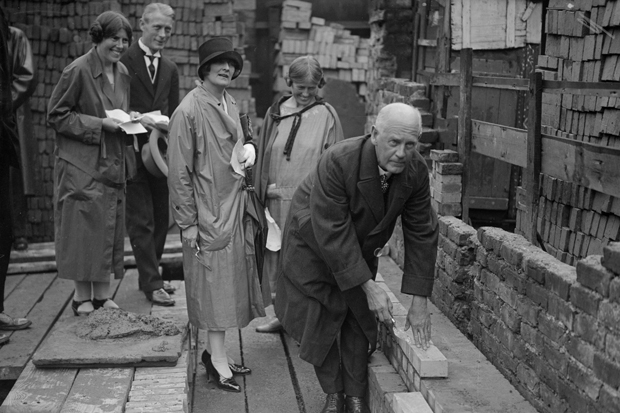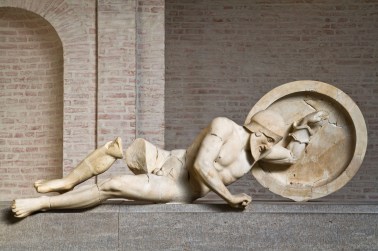This is the tale of Muriel Lester, once famous pacifist and social reformer, and Nellie Dowell, her invisible friend. Nellie Dowell is invisible in the sense that Claire Tomalin described Nelly Ternan in The Invisible Woman. While Ternan, the mistress of Charles Dickens, simply ‘vanished into thin air’, Nellie Dowell, who may or may not have been the mistress of Muriel, trod so lightly on the ground that she left barely a footprint behind her.
Muriel Lester, the daughter of a Baptist shipbuilder with progressive ideas, has been the subject of several books already, including Vera Brittain’s The Rebel Passion: A Short History of Some Pioneer Peacemakers. Born in 1885, she was memorably described by Caroline Moorehead, in Troublesome People: Enemies of War, 1916–1986, as a ‘scatty woman with wispy fair hair wound in Catherine wheels over her ears and rather long teeth’. Fashionably unorthodox, Muriel attached herself to the Tolstoyan cult of the simple life and can be seen in photographs wearing sackcloth and a beatific smile.
There are no such photographs of Nellie who was, according to Muriel, ‘the salt of the earth’. This is effectively all we know of her character. Born in the East End in 1876, Nellie was placed in an orphanage aged nine after which she became that iconic Victorian figure: a little match girl. One of the differences between the two women, says Seth Koven, is that ‘Muriel had a childhood and Nellie didn’t.’ Another difference is that Muriel, who lived until 1968, experienced old age while Nellie, who died in 1923, did not.
Koven, of Rutger’s University, stumbled on Nellie Dowell by accident. Among Muriel Lester’s papers he found 11 letters from ‘Nell’ and two fragmentary documents, written by Muriel, containing some biographical details of her friend’s life.








Comments
Join the debate for just £1 a month
Be part of the conversation with other Spectator readers by getting your first three months for £3.
UNLOCK ACCESS Just £1 a monthAlready a subscriber? Log in